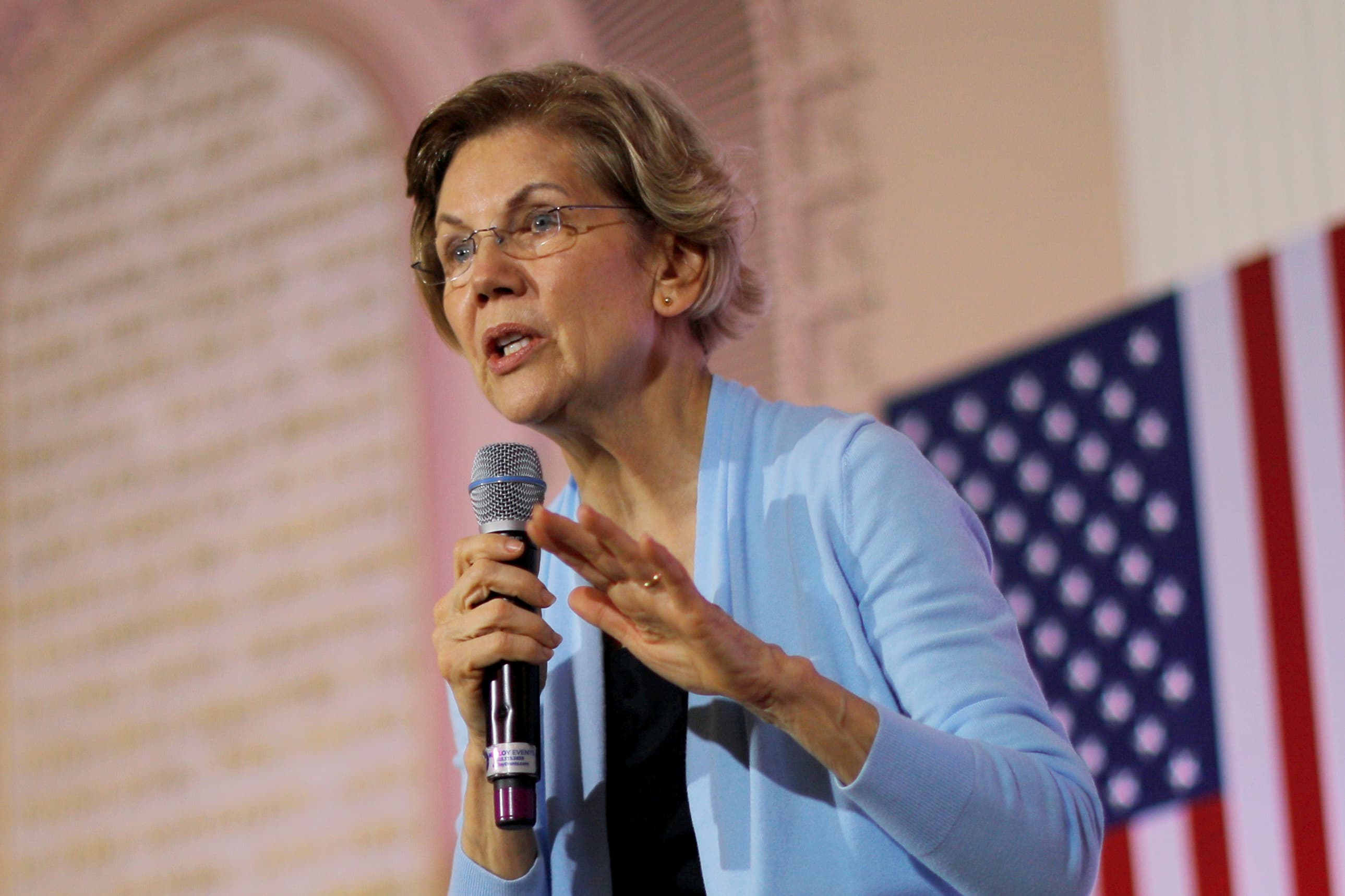
Democratic 2020 U.S. presidential candidate and U.S. Senator Elizabeth Warren (D-MA) speaks at a campaign town hall meeting in Portsmouth, New Hampshire, U.S. February 10, 2020.
Brian Snyder | REUTERS
Presidential campaigns have shown no signs of adjusting their event schedules even as the coronavirus outbreak prompts several companies to cancel or postpone events.
For instance, the Democratic primary race’s front-runner, Sen. Bernie Sanders, is holding a rally Sunday in a region of northern California that has reported a few infections of the virus.
Meanwhile, Facebook, Amazon and Workday are just a few in a growing list of companies that have canceled or pulled out of events as fears around the COVID-19 coronavirus grow. Big-ticket conferences Game Developers Conference in California have are now canceled. The ticketing industry, meanwhile, is getting worried that the virus could weigh on attendance at concerts and sporting events.
But as presidential campaigns carry on, some wonder how long they can do so without looking irresponsible.
“Infectious-disease specialists were saying as of [Friday] night – they don’t recommend fundamentally changing what people are doing – but we will have to see if it’s confined in certain parts of the country,” said Matt Dallek a political historian at George Washington University.
“You’re not going to be holding a massive rally in Portland, Oregon when schools are closed and people are working from home,” he added.
A spokesperson for Sanders told CNBC there was no change in plans for his Sunday rally in San Jose, California, ahead of the state’s crucial, delegate-heavy primary Tuesday. That’s despite the fact the public health department in Santa Clara County confirmed Friday a coronavirus infection that may have been transmitted through the community. San Jose is in Santa Clara. It is also where Facebook’s F8 event was supposed to occur in May.
A spokesperson for the California Department of Public Health earlier this week told CNBC it is “is not recommending the cancellation of public events.”
And other candidates are charging forward as well. Vice President Joe Biden held a rally Saturday in Raleigh, North Carolina. Sen. Elizabeth Warren is planning a meet and greet in Houston, Texas, on Saturday night. Trump had a rally Friday night North Charleston, South Carolina.
When contacted by CNBC, none of the spokespeople for Biden, Warren, former South Bend Mayor Pete Buttigieg, Sen. Amy Klobuchar and Sanders said there would be change to upcoming campaign behavior. That includes their dedication to continuing the old-fashioned tradition of campaign handshakes and a new one in selfies. Fistbumps, though, are known to transfer 90% fewer bacteria than a regular handshake
There are more than 85,000 confirmed cases of the virus worldwide and at least 2,933 confirmed deaths. More than 60 cases have been confirmed in the U.S. Washington state confirmed its first U.S. death from Coronavirus on Saturday. The state’s governor, former Democratic presidential candidate Jay Inslee, on Saturday declared a state of emergency.
Should the virus continue to spread, it may become impossible for campaigns to avoid the question. As companies cancel events and limit travel in the name of caution, candidates are taking a risk by carrying on as normal.
“I think we’ll see, pretty soon, decisions by the campaigns to limit rope line and scale back events to small-town halls and use technology like streaming to reach voters,” said Scott Gottlieb, former head of the Food and Drug Administration under Trump.
“Even if the risk doesn’t merit these steps right now, it’s important they consider the examples they set.”
There are other ways campaigns can get out their message, political advisors said, including by holding events at hospitals and with public health officials. Mike Bloomberg has spent over $500 million on a media campaign that requires no human contact at all. In its latest show of financial force, the Bloomberg campaign on Saturday announced that it had bought three minutes of air time for an ad, featuring the former New York mayor addressing the outbreak, which will be broadcast Sunday night on CBS and NBC.
But the candidates may need to start considering depressed turnout should concern over coronavirus keep voters at home. The first test on turnout will be Tuesday, when 14 states cast their ballots for one-third of the delegates in the Democratic primary race.
A spokesperson for the Democratic National Committee did not respond to inquiries earlier this week about whether there were concerns that coronavirus would impact turnout on Super Tuesday or preparations the committee is doing should the outbreak broaden.
Of the states voting next week, only California has so far announced a confirmed transmission. More than 2.7 million of 20.6 million registered voters have reportedly already cast their ballot through early voting, with Sanders expected to take the lead.
After that, there are still months until November. Before then, two conventions and likely hundreds of rallies are planned.
Even without rallies, Trump still has the bully pulpit, a stage he utilized Saturday in a rare, impromptu press conference.
But political experts who spoke to CNBC noted that stage may only be as good as its message. Trump has been criticized by his Democratic rivals for what they allege is has been a disorganized response to the crisis and the resulting turmoil in equities markets.
They have also used the outbreak as an opportunity to project what they hope voters will see as presidential leadership. Warren and Bloomberg have put out plans to improve responses to public health crises. Biden has emphasized his experience in the Obama administration, which responded to the Ebola outbreak. Ron Klain, who has received high marks for his performance as Obama’s “Ebola czar,” had previously served as Biden’s vice presidential chief of staff.
“Who’s best-equipped to handle pandemonium and massive economic fallout?” said Dallek, the historian. “That becomes more of a central question in the debate – and that will change the argument.”



